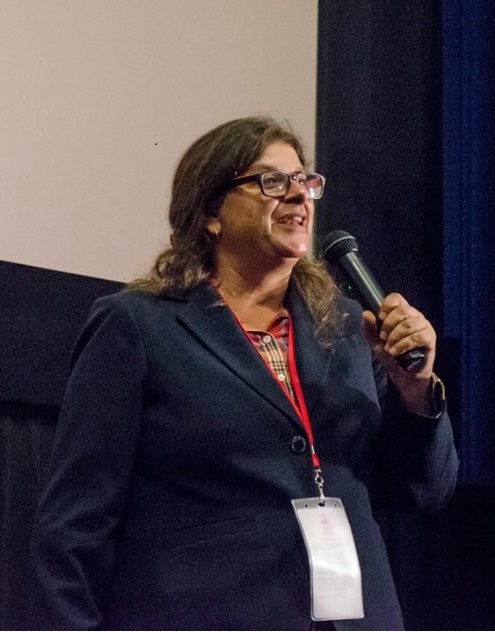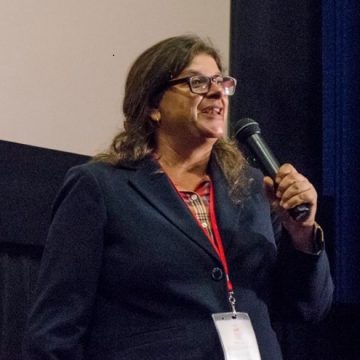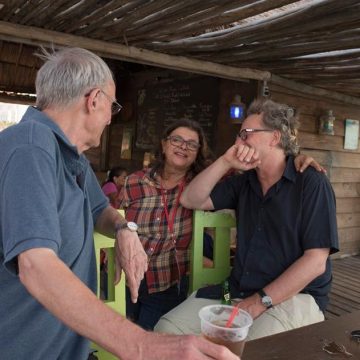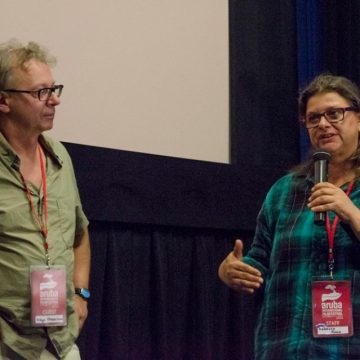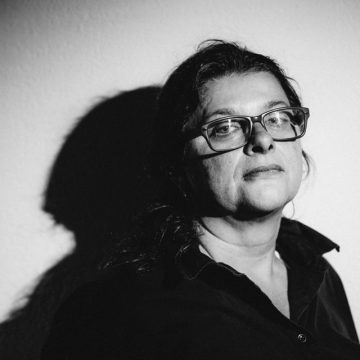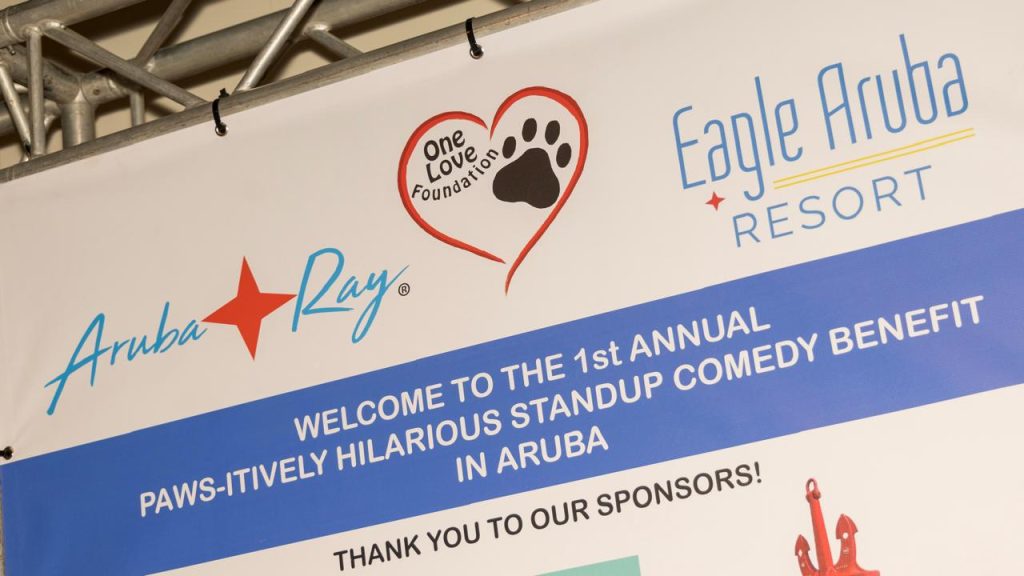VA: How did you get involved in the Aruba International Film Festival?
RR: In 2011, Aruban filmmaker Aaron Hosé and festival co-founder Jonathan Vieira decided to add a new section to the festival, which focused more on local and regional films. Thus the Caribbean Spotlight Series (Caribbean feature films) and Aruba Flavor (Aruban short films) competitions were born. Looking for assistance in selecting the films I got a call from Aaron and that is how I got involved. At first it was totally voluntary, but over the years my role grew to where now I am the Director of Industry Events.
VA: What qualities are you looking for in a film that can be screened at the Aruba International Film Festival?
RR: In the beginning the Aruba International Film Festival did not have any competition categories. The original AIFF Artistic Director chose films that had proven themselves at major international film festivals to be screened at AIFF, but these films were exhibited as more of a showcase as opposed to a competition. In 2011, Aaron Hosé added the Caribbean Spotlight Series and Aruba Flavor to the festival, which would become AIFF’s first competitive sections. As of this year, the AIFF film program has several competitions: International Features, International Shorts, Documentary Features (which we call “DoxNfocus”), Caribbean Spotlight Series, and Aruba Flavor. Any film that meets the criteria of the category, length and production year can submit once submissions are opened via our website and festival submissions platform. A programming committee reviews all the films and rates them via both a quantitative and qualitative system. Films that rate the highest or fit that year’s program as a whole the best are selected in each category.
The programming committee consists of both local and international film professionals and film enthusiasts with strong ties to Aruba (most of the committee is from Aruba). In 2015, the festival received several hundred submissions. Aside from this, some films are “curated”; meaning, they may have been seen by a member of the programming committee at other renowned festivals, and were deemed a good fit for local audiences in Aruba. Though not entirely clear to an outsider, the international festival circuit is highly competitive. The ability to host “world” and “international” premieres gives a festival added credibility. Not to mention, the attending international film journalists are likelier to write about these films (from wherever they are). This gives the festival a great deal of exposure, with more possibilities to grow and attract more filmmakers and submissions in subsequent years.
VA: From all of the screened films you have seen, was there one that stood out from the rest?
RR: This year we really had a very strong festival, with many films I really loved. It is hard to pick one favorite. Great “gets” were the international premiere of Shame with Tyrese Gibson, the Caribbean Premiere of The Lobster with Colin Farrell and the international premiere of the Opening Film The Driftless Area. In our International Features section, we had the International premiere of Een Dag in ‘t Jaar, which ended up winning the Jury Award in that category. I also enjoyed Pot v Raj (Sailing to Paradise), a beautiful film from Slovenia that received a Special Mention from the jury. In the DoxNfocus category, five of the six films in competition were international premieres. In the Caribbean Spotlight Series category, the documentary Deal with It by Aruban filmmaker Shamira Raphaëla won both the Jury and the Audience award. The International Shorts category was filled with international and world premieres, and turned out to be very popular with our audiences. The winner was a gorgeous Spanish animated short called Cuerdas. The jury also gave Sucouyant, a short from the Caribbean island of St Lucia, a Special Mention. The Aruba Flavor category this year saw a strong presence, with more artistic films than ever before. The jury awarded the prize to Alto Vista, by multiple award-winning and internationally acclaimed Aruban director, Francisco Pardo. Audiences chose the short action/drama The Package as their favorite in this category.
VA: What is the mission of the Caribbean Spotlight Series during the Aruba International Film Festival?
RR: One of the primary goals with AIFF’s Caribbean Spotlight Series is to give Caribbean filmmakers a strong platform from which they can launch their film’s festival run. Since the very beginning, AIFF has always welcomed some of the film industry’s most respected press outlets, whose journalists write excitedly about the festival and the high-quality films they see.
When looking at other festivals in the Caribbean region, we feel that this aspect of the AIFF alone (international press exposure opportunities) already makes us an attractive festival for filmmakers to share their work. This coupled with the warm Aruban hospitality that we show our visiting filmmakers (Caribbean or not) and press, makes for a truly unique experience.
As Industry Events Director, my task is to make the festival attractive to “the industry”, the film professionals from all over the world. One of the ways we do this is by creating industry events that allow the Caribbean and Aruban films to receive more audience and press attention. This year, we had a panel discussion on Caribbean Film: Transcending the Local, and an “In Conversation With” (ICW) Aruban filmmaker Sebastian Hofer, where he was interviewed by international film press attendee René Mioch about his first film Loke Ami Stima (What I Love). A first cut of the film was also screened, after which Sebastian received some offers for extra funding to finish the film. We also had an ICW with Shamira Raphaëla, Putting Your Life on the Screen, about the challenges of making a documentary and involving yourself in it. This ICW received a lot of international press coverage.
This year, we also started with a pilot program for an international film market, the International Film Market Aruba (IFMA). This has been a dream of mine for many years. Attending filmmakers with films in competition, and those who had separately applied to be part of the market (no need to have a film in competition), were offered an infrastructure to meet with film buyers to discuss and pitch their film projects. To further support the efforts of the IFMA, we also created an industry event (panel discussion) with the attending film buyers. In the panel discussion, they revealed what they are looking for film-wise when they attend festivals, thus giving the attending filmmakers more tools to make films that might be picked up by one of these buyers in the future, and via them reach a bigger distribution market.
VA: What has been the challenge when selecting films for the CSS?
RR: For me, the biggest challenge is receiving many worthy film submissions, but only having a few slots to fill. In that sense the selection process is always challenging, because you never enjoy going back to a filmmaker to tell them their film “did not make the final cut”. Ultimately, Aaron Hosé, who’s been the Programming Director since 2013, makes the final programming decisions. But of course we do try to approach the selection process with our entire committee as democratically as possible. Once we have filtered through our submissions pool and we’re nearing the final selection process, Aaron and I examine the film program to determine the types of industry events that I can create that will relate strongly to the films the audiences can see at our festival.
I must add that this year the large number of submissions was an extra challenge. Both Aaron and I are filmmakers ourselves, so we want to make sure every film that submits is viewed, the same way we would like our films to be viewed when we submit to international film festivals. With several hundred films to screen this year between end of May and end of August… you do the math. But we really did review all the films, so I am proud of that.
VA: Do you receive many local submissions for the CSS?
RR: We received many submissions for all the categories. The local filmmakers are making more and more films each year, and that was reflected in the amount of submissions. AIFF is a great platform for them, not only as a way to see their film in a real Cinema with all the technical benefits, but also to get it in front of international film press, and out to the world.
VA: In what ways has the CSS improved throughout the years of the Aruba International Film Festival?
RR: With each year, more local and regional filmmakers see the benefits of a screening at AIFF. We have always respected international film journalists present, and the international exposure opportunities for your film are often times very high. Of course it always helps if the filmmaker is present. If a press member likes a film, they will request an interview with the filmmaker. They can also do this via Skype or e-mail, but that will wait till after the festival and they might already be at the next festival and have many other priorities. We see a growth in the presence of Caribbean filmmakers at our festival. We have a very limited budget to pay for filmmakers to come, but we help them where we can, make deals with hotels for them, look for affordable apartments or even guest-families. This year we saw the highest amount of filmmakers come on their own dime and this trend will only grow in the coming years.
VA: Is there any particular way you would like to take the Aruba International Film Festival to the next level?
RR: I believe the next level is more and more attendance of filmmakers from all over the world who see the benefit of not only submitting their film to AIFF but also attending, even when they do not have a film in competition. The IFMA (our film market) will also play a large part here long-term, as it will allow films that are not finished, or not selected to enter the market. Films in the market can even rent screening time, and still be presented to press and market attendees. Unlike the regular program, where the general audience can buy a ticket to any screening, market films can only be viewed by market pass holders. So, in short, the answer to your question is: we will continue on the path we have taken.
VA: What has been your best memory at the Aruba International Film Festival?
RR: No way I can choose a “best” memory. They are all good… from meeting one of my favorite directors to discovering an enthusiastic volunteer. During the incredibly busy days of the festival you become a family. And as with all families, even when you fight, you cannot help loving each other and thinking of them with a smile on your face.
VA: Is there any advice you would like to give to those interested in the film industry?
RR: Go for it! If film is your passion and you make it your profession, give it your all and do not give up. Do not expect a luxurious lifestyle. But it will all be worth it.
On behalf of VisitAruba.com we would like to thank Rebecca Roos for her contribution to this Q&A. This was truly a spectacular year for AIFF!

